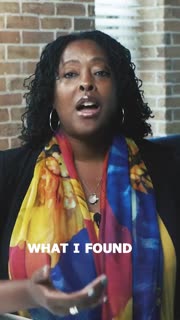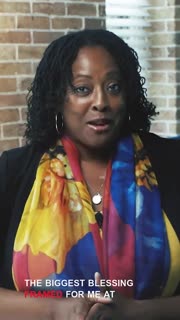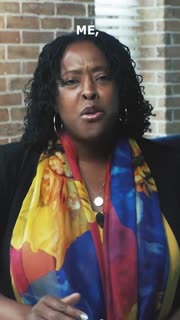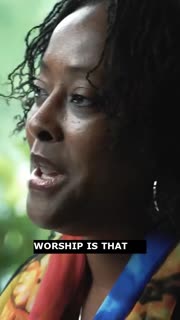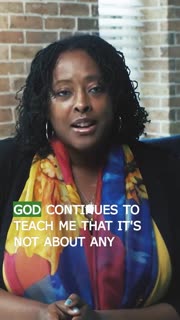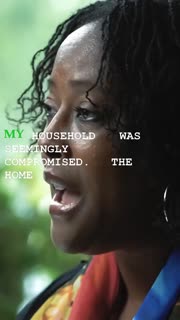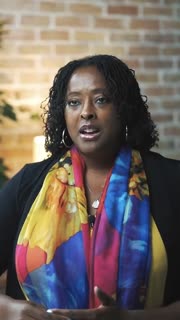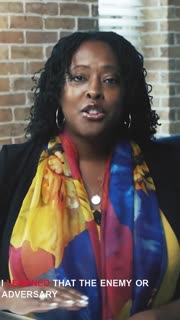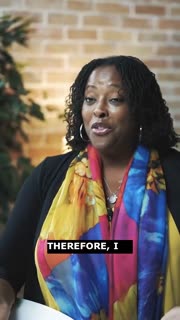Finding Healing and Hope Through Worship and Vulnerability
Devotional
Sermon Summary
Bible Study Guide
Sermon Clips
### Quotes for outreach
1. "What I found throughout the years is that every bit of tension, shame, guilt, and fear disappears when I worship the Lord, specifically through music and dance. But being truly transparent, hiding is easier at times. I would rather hide in a corner and put a blanket over my head than speak with people and be visible." [01:34] (22 seconds)
2. "The biggest blessing framed for me at the age of nine, sitting in a pew during the night, and one of the few times my mother was allowed to take us to church, God said, it's time. I doubt that it was audible, but that is how it felt. I replied, okay. And this is where my heart bonded with him." [04:06] (18 seconds)
3. "For me, worship is not just a song or a dance movement. It is a way to fight, to thrive and survive. It's not for my entertainment. It is for connection to God and ministry to people." [08:12] (13 seconds)
4. "The beauty of worship is that it can take on so many forms, different styles, sounds and movement, even with physical limitations, our beautiful worship to God. I heard a dancer who has a debilitating physical disease say that she will still be dancing with her eyeballs. So even if it's just my eyeballs moving, it is worship to God." [09:04] (22 seconds)
5. "God continues to teach me that it's not about any specific move that I make, but about where my heart is. Bringing light to darkness, as hard as it is, is a wonderful thing. It helps us to heal and to understand each other." [09:46] (15 seconds)
### Quotes for members
1. "My household was seemingly compromised. The home on the outside was full of underlying turmoil and struggle. A constant tension surrounded everything, all the time. You see, we had a plant in our home growing up. And if a leaf fell off or died, my brothers and I were to blame." [01:34] (19 seconds)
2. "The generational effects for me began at the age of five. I was sexually abused by an aunt on my father's side of the family. My father was domestically abusive to my mother, cheated on her, and suffered with drug addiction. Everything needed to be in order in my home, or all would fall apart." [03:02] (20 seconds)
3. "I learned that the enemy or adversary wanted me to keep everything hidden. To keep me locked down in spirit, mind and body. I felt that I was saving everyone from the burden of worrying about me. I didn't want to add pain to the existing struggles." [07:15] (17 seconds)
4. "I still deal with the fear for sure. And I question a lot. But it is such an honor and a blessing to worship. You see, the beauty of worship is that it can take on so many forms, different styles, sounds and movement, even with physical limitations, our beautiful worship to God." [09:04] (20 seconds)
5. "Therefore, I will always choose to expose my heart, to not hide from pain, to not hide from others' judgment. Even if I'm dancing on my own, even if it looks different, even if others just stare or simply don't get it. Because if even one person gets to experience the freedom and deliverance from a downcast soul, then it is so worth my moments of uncomfortability." [10:36] (25 seconds)
Ask a question about this sermon
1. "What I found throughout the years is that every bit of tension, shame, guilt, and fear disappears when I worship the Lord, specifically through music and dance. But being truly transparent, hiding is easier at times. I would rather hide in a corner and put a blanket over my head than speak with people and be visible." [01:34] (22 seconds)
2. "The biggest blessing framed for me at the age of nine, sitting in a pew during the night, and one of the few times my mother was allowed to take us to church, God said, it's time. I doubt that it was audible, but that is how it felt. I replied, okay. And this is where my heart bonded with him." [04:06] (18 seconds)
3. "For me, worship is not just a song or a dance movement. It is a way to fight, to thrive and survive. It's not for my entertainment. It is for connection to God and ministry to people." [08:12] (13 seconds)
4. "The beauty of worship is that it can take on so many forms, different styles, sounds and movement, even with physical limitations, our beautiful worship to God. I heard a dancer who has a debilitating physical disease say that she will still be dancing with her eyeballs. So even if it's just my eyeballs moving, it is worship to God." [09:04] (22 seconds)
5. "God continues to teach me that it's not about any specific move that I make, but about where my heart is. Bringing light to darkness, as hard as it is, is a wonderful thing. It helps us to heal and to understand each other." [09:46] (15 seconds)
### Quotes for members
1. "My household was seemingly compromised. The home on the outside was full of underlying turmoil and struggle. A constant tension surrounded everything, all the time. You see, we had a plant in our home growing up. And if a leaf fell off or died, my brothers and I were to blame." [01:34] (19 seconds)
2. "The generational effects for me began at the age of five. I was sexually abused by an aunt on my father's side of the family. My father was domestically abusive to my mother, cheated on her, and suffered with drug addiction. Everything needed to be in order in my home, or all would fall apart." [03:02] (20 seconds)
3. "I learned that the enemy or adversary wanted me to keep everything hidden. To keep me locked down in spirit, mind and body. I felt that I was saving everyone from the burden of worrying about me. I didn't want to add pain to the existing struggles." [07:15] (17 seconds)
4. "I still deal with the fear for sure. And I question a lot. But it is such an honor and a blessing to worship. You see, the beauty of worship is that it can take on so many forms, different styles, sounds and movement, even with physical limitations, our beautiful worship to God." [09:04] (20 seconds)
5. "Therefore, I will always choose to expose my heart, to not hide from pain, to not hide from others' judgment. Even if I'm dancing on my own, even if it looks different, even if others just stare or simply don't get it. Because if even one person gets to experience the freedom and deliverance from a downcast soul, then it is so worth my moments of uncomfortability." [10:36] (25 seconds)
